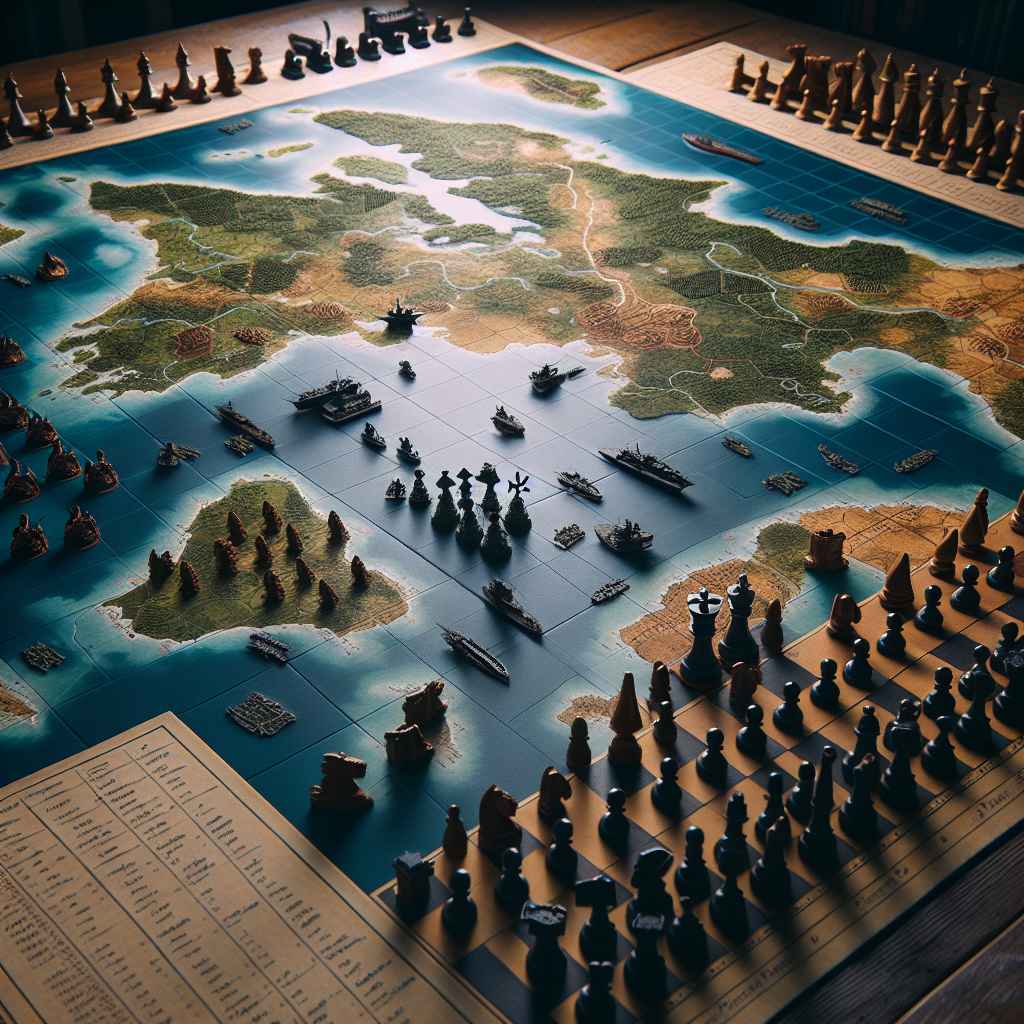The Strategic Blunders That Reshape Geopolitical Landscapes: From Pearl Harbor to Crimea
In the tumultuous theatre of global geopolitics, where nations act as grandmasters in a high-stakes game of chess, certain moves have monumental and irreversible consequences. The attack on Pearl Harbor by Japan in 1941 and Putin’s 2022 incursion into Ukraine serve as poignant exemplars of strategic miscalculations with far-reaching ramifications. Both instances, separated by decades and unfolding under different global circumstances, underline a common thematic underpinning: the pivotal error, a strategic blunder so monumental that it reshapes the geopolitical landscape.
The Catalyst of War: Pearl Harbor
When Japan, already mired in the quagmire of its expansionist ambitions in China, decided to extend its militaristic overture to Pearl Harbor, it committed an error of judgment that would irrevocably alter the course of World War II. This decision, steeped in a mix of overconfidence and a gross underestimation of American resolve, serves as a classic example of strategic miscalculation.
Japan's objective was ostensibly simple: to neutralize the United States as a Pacific power, allowing unbridled access to the resources needed to continue its military campaigns in Asia. However, the attack on Pearl Harbor, rather than serving as a crippling blow to American military capability, galvanized the United States, transforming it into a determined adversary. Within hours of the attack, America's industrial might was repurposed for war, and the nation emerged as a formidable global leader, forming alliances that would ultimately tip the scales of power in the Pacific.
The Misjudgment of Cultural Dynamics
At the heart of Japan's strategic misstep was a profound misunderstanding or perhaps disdain for the cultural and geopolitical realities of Hawaii and the United States. The assumption that the United States, preoccupied with its continental challenges and relatively distant from the statehood of Hawaii (which wouldn't be formalized until 1959), would be discouraged by a single, albeit devastating, military strike showcases a remarkable oversight. Japan's failure to anticipate the unifying effect of the attack on the American public and its allies underscores the dangers of underestimating the spirit and resolve of one's adversary.
From Crimea to Kyiv: Putin's Pivotal Error
Fast forward to the 21st century, and we observe a similar theme of strategic overreach with Putin's military adventures in Ukraine. Initially, the annexation of Crimea, while met with international condemnation, did not significantly alter Russia's standing on the global stage. It was a calculated risk that, for a time, paid dividends. However, the 2022 decision to launch a full-scale invasion of Ukraine represented a crucial error with no easy path to rectification.
This audacious attempt to "take the whole enchilada," as it were, has not only ignited a protracted conflict but also isolated Russia internationally, triggering unprecedented sanctions and reinvigorating NATO. The strategic calculus that once favored subtle incursions and territorial acquisitions has been replaced by a stark reality: a deeply entrenched military confrontation with global economic and political consequences.
For further reading on the strategic implications of the Ukraine conflict, consider The Council on Foreign Relations.
The Unintended Consequence: Strengthening of Adversaries
In both historical cases, the aggressors faced an unintended consequence: the galvanization of their adversaries. Japan's attack on Pearl Harbor transformed the United States into a unified colossus of military and industrial power, while Putin's gamble in Ukraine has revitalized NATO, bringing the alliance closer together and encouraging increased defense spending among member countries.
This phenomenon, wherein a miscalculated aggression inadvertently strengthens the opposition, serves as a cautionary tale for nations contemplating the use of force as a means of achieving geopolitical objectives.
The Lessons of History
The strategic blunders at Pearl Harbor and in Ukraine offer invaluable lessons for current and future leaders. They underscore the importance of understanding the cultural, political, and military landscapes before engaging in actions that can irrevocably alter the status quo. Moreover, these events highlight the unpredictable nature of warfare and the potential for miscalculations to engender outcomes diametrically opposed to the intended objectives.
In an era where global dynamics are increasingly complex and interconnected, the cost of pivotal errors has never been higher. Whether in the realm of military strategy, economic sanctions, or diplomatic maneuvering, the lessons of Pearl Harbor and Crimea serve as poignant reminders of the need for prudence, foresight, and a deep appreciation for the long-term implications of strategic decisions.
In conclusion, the paths taken by nations on the geopolitical stage are fraught with peril and unpredictability. The strategic errors made at Pearl Harbor and in Crimea are not merely historical footnotes; they are stark reminders of the consequences of miscalculation. As we navigate the complexities of the modern world, let us hope that the leaders of today and tomorrow will heed these lessons, embracing caution and clarity of vision in their quest to shape the future.
Related News
- Peering Into the Abyss: The Shadow of Global Conflict in the Modern Era
- Analyzing Putin's Double-Down Dilemma: A Deep Dive
- The Legacy of World War I: Shaping the Strategic Minds of World War II
- The Ripple Effects of Desperation: A Deep Dive into Japan’s Historical Decision and Economic Downfall
- Navigating the Tightrope: The Delicate Dance of Diplomacy with Russia
